Decolonization
Transcript of the Treaty of Basseterre of 1981
To capture the diplomatic side of Caribbean economic history from the point of view of the governments, official documents describing economic policies, joint strategies, and related decision-making processes in the Caribbean

Popular World Development Indicators for Four Caribbean Countries
Raw numerical data may be pursued to track historical behavior through socioeconomic and demographic indicators.
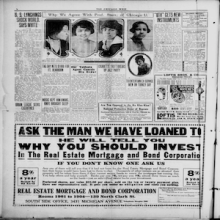
Source Collection: Pan-Africanism, Anticolonialism and Addressing the Problem of the Global Color Line in the 20th Century
At the turn of the 20th century, a growing number of Black intellectuals and activists across the Atlantic world no longer saw institutionalized racial inequality, racial hierarchy, and white supremacy as problems confined to the borders of individual nations.
Mandate for Palestine
The Mandate for Palestine was a legal document that established the United Kingdom as a Mandatory in charge of Palestine and Tran

“Drive the old and new colonialists out of Africa!” Propaganda Poster, 1964
This Chinese propaganda poster, dated August 1964, was designed by Chinese painters Wang Datong and Du Yongqiao and published by the People’s Fine Arts Publishing House in Beijing.
Mao Tse-tung's Statement Regarding Racial Discrimination in the United States, 1963
Chinese Communist Party Chairman Mao Tse-tung delivered this speech on August 9th, 1963 prior to the March on Washington for Jobs and Freedom. In it, he expresses support for Black Americans’ struggles against racial discrimination and calls upon peoples of the world to unite against U.S.
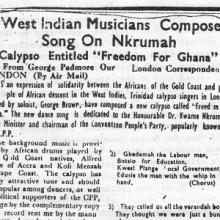
Short Teaching Module: Music and Decolonization in the Black Atlantic
The decades after World War II witnessed rapid decolonization of European empires and a dramatic increase in independence movements for colonized peoples.
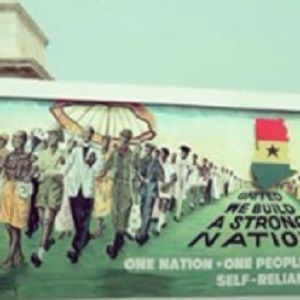
Lord Kitchener, “Birth of Ghana,” 1957
On March 6, 1957, the Gold Coast Colony declared its independence from Britain and became Ghana, the first West African nation to break from European colonial rule.
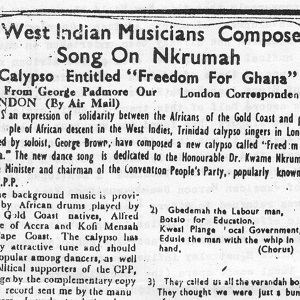
George Browne “Freedom for Ghana”
While living in London in the early 1950s, the Trinidadian calypsonian George Browne (whose stage name was Young Tiger) penned a calypso called “Freedom for Ghana” that caught the attention of George Padmore, the Trinidadian pan-Africanist intellectual and journalist, who wrote about it in the Gh
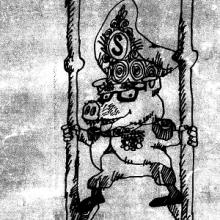
Short Teaching Module: Transnational Connections and the Long Cold War in Nicaragua
A strength of teaching from a transnational perspective is that it forces us to reorient our viewpoint and consider new approaches to our subjects. This is particularly true when looking at modern Latin American history.